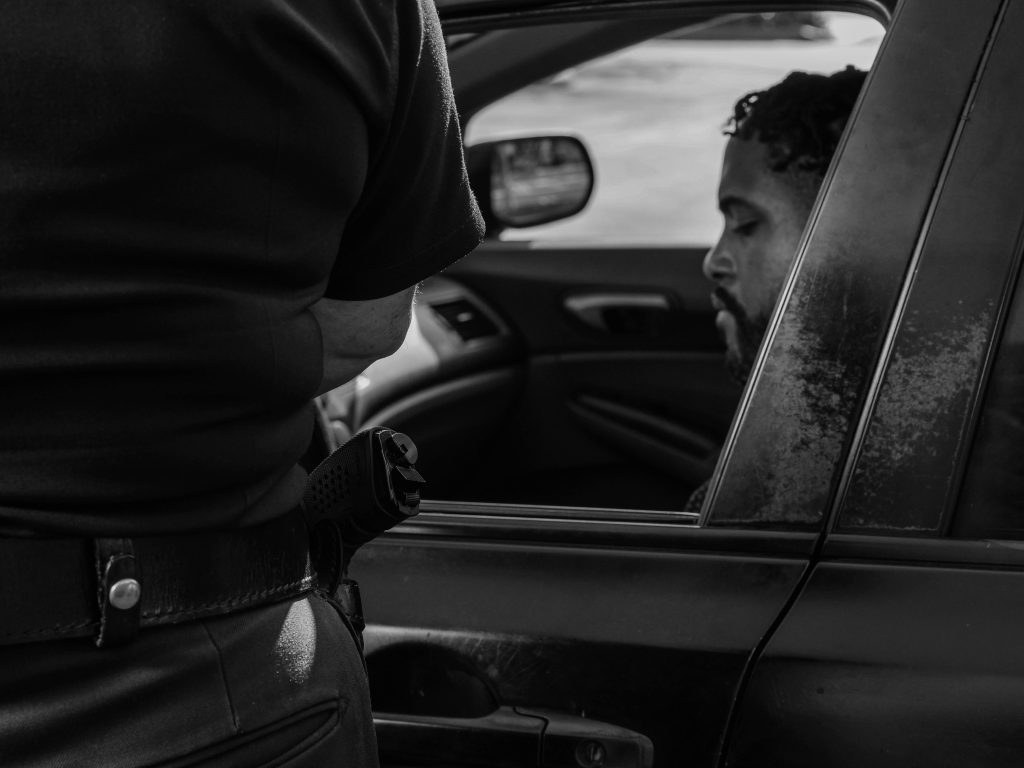
No attorney can replace the value of you knowing your rights and asserting them from the beginning to the end of a police contact. Police may try to convince you that cooperating with them will result in some sort of leniency, but this is a lie. It will only get you into more trouble by helping the police build a case against you.
Whether you are a citizen of the United States or not, or if whether you are an adult or minor, you have the same constitutional rights. Click on your rights below to educate yourself about what you do NOT have to do in interactions with the police. Asserting your rights during police contacts is the most powerful tool you have to win your case before your ever get to court.
THE RIGHT TO WALK AWAY
Ask “am I free to leave?” when police approach you and start to talk with you. When police prevent you from leaving, you are detained and “seized” under the Fourth Amendment. Before police can detain you, they must have “reasonable suspicion” that you are involved in criminal activity.
If police tell you that you are NOT free to leave or confirm that you are being detained, you must comply. But if they indicate that staying with them is optional, you are free to leave and you can (and should) walk away.
THE RIGHT TO REMAIN SILENT
Many cases would not be provable if the suspect had refused to speak with police. The Fifth Amendment’s privilege against self-incrimination guarantees that you ALWAYS have the right to refuse to speak with police and doing so cannot be used against you. Police will convince you that talking with them will help you, that they want to hear your side of the story, that they already know what happened so refusing to tell the truth only makes you look bad, etc. ( It is illegal for police to make any sort of promise or threat to get you to talk to them about a crime, by the way, but it is rare for a judge to throw out a confession by finding police coerced it with promises or threats.)
Your best option in the vast majority of police contacts is to clearly assert your Fifth Amendment rights from the beginning. You can say, “I do not wish to speak with you,” “I am asserting my right to remain silent,” or “I want a lawyer.”
THE RIGHT TO REFUSE TO BE SEARCHED WITHOUT A WARRANT
Police cannot search you without a warrant, unless an exception to the 4th Amendment warrant requirement exists. You NEVER have to give consent to search. If police ever ask to search you, say “no” or “I do not consent to being searched.” Also, do not tell police that you have something on you when they are about to search you, or this could justify the search and cause you to lose your suppression motion.
Some common exceptions when police can search you without your consent or a warrant include:
- Pat Search: If police have a legitimate reason to detain you, they can pat down the outside of your clothing with flat hands if they have “specific and articulable facts that you are ARMED AND DANGEROUS.” The fact that you were wearing baggy clothing and looked nervous is not enough.
- Search Incident to Arrest: Police can complete a full search of your pockets and bags you are carrying if they are arresting you. They can do this search before they cuff you if they are in fact going to arrest you, but if they do not actually intend to place you under arrest, the search is illegal. For example, if an officer is going to issue a citation rather than placing you in handcuffs and taking you to jail, he cannot complete a full search incident to arrest of your clothing and bags you are carrying.
- Probation Search: If you are on probation, particularly for a felony or weapons or drug misdemeanor offense, you have likelky given up your 4th Amedment right to be free from warrantless searches. Police cannot search you pursuant to your probation terms, however, if they are not aware of your search terms. If they stop and search you for no good reason but find out later that you had probation search terms, the search is still illegal and the evidence should be suppressed.
Top 10 Know Your Rights FAQ’s

1. Can my case get thrown out if the police never read me my Miranda rights?
SOMETIMES. Police only have to read you your Miranda rights if they have placed you under arrest and begin questioning you about the case. If they violate your Miranda rights, the DA cannot use the statements you made to police to prove the charges, unless you testify and say something different in court. Sometimes the DA cannot prove a case without your statements, and the case is dismissed.
2. Can police search my house without showing me the search warrant?
YES. Police cannot search your house without a valid warrant or exception to the warrant requirement, but if they have a warrant, they do not have to show it to you. They do have to comply with “knock notice” requirements, meaning they have to announce that they are the police and are there to execute a warrant.
3. Can police use my face to unlock my phone without my permission?
YES, if they have a warrant. But they cannot force you to tell them your password to open a phone. If you are concerned about police searching your phone, use a code rather than your face to lock your phone. They may be able to get into it anyway eventually, but it takes longer and sometimes they can’t get in at all.
4. Do police have to tell me why I am being detained?
NO, but they have to be able to justify why they stopped you later to a judge, and they cannot prevent you from leaving for longer than it takes them to investigate the reason they stopped you. For example, if they stop you for speeding, they cannot make you wait an hour for a drug-sniffing dog to arrive and circle your car.
5. Are “pretext” stops illegal?
SOMETIMES. This is a recent development in California. Under the Fourth Amendment, police can stop you for pretextual reasons. For example, if you have a broken tail light, they can stop you even if their real reason is because you have tattoos on your face. California’s Racial Justice Act (RJA), however, provides your attorney with new arguments to make for obviously pretextual police contacts. RJA motions are complicated but can sometimes help when you have been racially profiled.
6. Do I have to identify myself when police ask for my name?
If you are detained, police can ask you for your name and for an identification card. You are, of course, required to provide your license if you are driving. If you are not driving, you cannot be punished for failing to identify yourself until you are being booked–after arrest. (See In re Chase C. (2015) 243 Cal.App.4th 107, 119.) You must identify yourself after arrest.
7. Can I argue that police found my stuff during an illegal search of my friend?
NO. You cannot argue that evidence against you should be suppressed because police violated someone else’s rights. If your friend is being charged with illegal possession, he or she can fight that case based on the illegal search. But you can only move to suppress evidence based on a violation of your own 4th Amendment rights.
8. Can police search my car during a traffic stop?
USUALLY NOT. Police can only search your car if (1) they have probable cause to believe the car contains illegal items or evidence related to a crime, (2) they have reasonable suspicion to believe you are armed and dangerous and have a concealed weapon in the car, or (3) police arrest you and you are in reaching distance of the car or the police have reason to believe the car contains evidence related to the crime of arrest. Protect yourself during a traffic stop by ensuring your car does not smell like marijuana or alcohol and you don’t have open containers, guns, or knives out in plain view.
9. Is it legal for police to lie to me and trick me?
FOR ADULTS, YES. (Kids have additional protections.) Many police departments train officers in interrogation techniques that involve deception, such as claiming they found your DNA at a crime scene, or that they saw you on surveillance footage. No matter what police tell you, the best approach is always to remain silent and ask for an attorney immediately, even before you are arrested. Many people prove the DA’s case against them by trying to defend their actions to police.
10. Do I ever have to consent to a search?
NO! You should comply with police commands to let them search you, but you never have to agree to police requests. You never have to give an officer permission to search you. If an officer tells you to put your hands up and spread your legs, you can clarify, “am I required to?” If the officer says yes, you should comply and your attorney can fight the search later if it was illegal. But if an officer asks if he can search you, JUST SAY NO. It is your constitutional right to decline to be searched.
